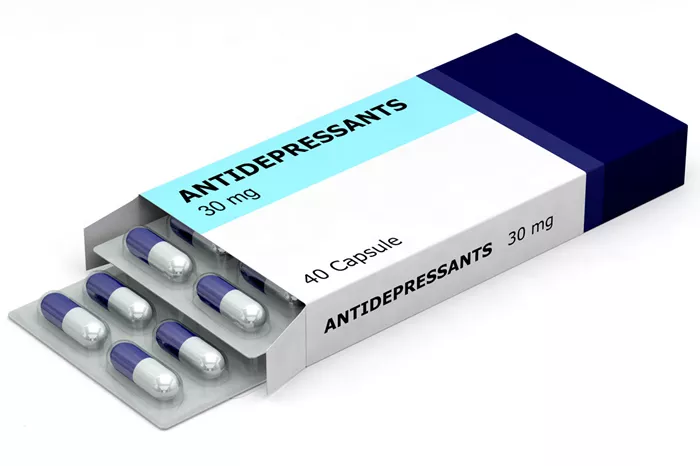Do you or someone you know struggle with Borderline Personality Disorder (BPD) and anxiety? These two conditions often go hand in hand, causing a challenging emotional landscape. The good news is that there are several medications that can help manage symptoms effectively. If you’re wondering which medications are most effective for treating both BPD and anxiety, this article will guide you through the options that can help improve your well-being.
The 8 Best Medication For Bpd And Anxiety
1. Antidepressants (SSRIs and SNRIs)
One of the most commonly prescribed medications for anxiety and mood disorders are antidepressants. They are typically used to manage the emotional instability associated with BPD and reduce anxiety symptoms.
SSRIs (Selective Serotonin Reuptake Inhibitors): SSRIs are frequently used to treat both anxiety and depression. These include medications like fluoxetine (Prozac), sertraline (Zoloft), and escitalopram (Lexapro). They work by increasing the serotonin levels in the brain, which helps to regulate mood and reduce feelings of anxiety.
SNRIs (Serotonin-Norepinephrine Reuptake Inhibitors): Medications like venlafaxine (Effexor) are SNRIs. They work similarly to SSRIs but also impact norepinephrine, another neurotransmitter that helps regulate mood and anxiety.
SSRIs and SNRIs are effective in reducing both the anxiety that comes with BPD and the emotional swings that characterize the disorder.
2. Mood Stabilizers
Mood stabilizers can help control the intense mood swings that are common in individuals with BPD. These medications are typically used to treat bipolar disorder but have also proven effective for BPD.
Lamotrigine (Lamictal) and valproate (Depakote) are examples of mood stabilizers that can help balance emotions, improve mood stability, and reduce impulsivity.
These medications are especially beneficial in reducing irritability and impulsive behaviors, which are hallmarks of BPD.
3. Antipsychotics
In some cases, antipsychotic medications are prescribed to help manage symptoms of BPD and anxiety. These medications help to reduce symptoms of severe emotional distress and distorted thinking that can occur in BPD.
Olanzapine (Zyprexa) and aripiprazole (Abilify) are examples of atypical antipsychotics often used in these cases. They work by altering the brain’s neurotransmitter activity, helping to control impulsive behaviors, mood instability, and anxiety.
While antipsychotics can be effective, they are usually prescribed when other medications are not sufficient in managing symptoms.
4. Benzodiazepines
Benzodiazepines are fast-acting medications used for acute anxiety relief. These medications can be extremely effective for anxiety-related symptoms in BPD but should only be used short-term due to the risk of dependence.
Alprazolam (Xanax), lorazepam (Ativan), and clonazepam (Klonopin) are commonly prescribed benzodiazepines. They work by calming the central nervous system and are helpful for immediate anxiety relief.
Due to their addictive potential, benzodiazepines should be used with caution and under close medical supervision.
5. Beta-Blockers
Beta-blockers are medications that primarily treat heart-related conditions but can also be effective in managing the physical symptoms of anxiety. These symptoms include rapid heart rate, sweating, and trembling.
Propranolol (Inderal) is a commonly prescribed beta-blocker for individuals with anxiety. While beta-blockers don’t address the psychological aspects of anxiety, they can help with the physical manifestations, making anxiety more manageable.
These medications can be useful for people experiencing anxiety in stressful situations, such as public speaking or social anxiety.
6. Buspirone
Buspirone is an anti-anxiety medication that is often used as a long-term treatment option for generalized anxiety disorder (GAD). It works by affecting serotonin and dopamine receptors in the brain, providing relief from anxiety without the sedative effects associated with other medications.
Unlike benzodiazepines, buspirone doesn’t cause dependence or withdrawal symptoms, making it a safer option for long-term anxiety management.
7. Divalproex (Depakote)
Divalproex, also known as Depakote, is an anticonvulsant medication that is used to stabilize mood and treat impulsive behavior. It is particularly useful for individuals with BPD who experience frequent emotional outbursts or have difficulty controlling their impulses.
This medication works by affecting neurotransmitters in the brain that control mood and anxiety. Divalproex has been found to reduce aggression and impulsivity, which are common symptoms of BPD.
8. Antidepressants (TCA)
Tricyclic antidepressants (TCAs) are an older class of antidepressants that can help manage both anxiety and depression in people with BPD. While not as commonly prescribed today due to side effects, TCAs can still be an effective treatment option for some individuals.
Amitriptyline (Elavil) and nortriptyline (Pamelor) are examples of TCAs that can help with mood regulation and anxiety reduction.
These medications are generally used when other treatment options are ineffective, and they work by increasing levels of both serotonin and norepinephrine in the brain.
Conclusion
Managing BPD and anxiety can be challenging, but with the right treatment plan, it is possible to lead a more balanced and fulfilling life. Medication, along with therapy, can be crucial in controlling the emotional turmoil and anxiety that often accompanies BPD. It’s important to work closely with a healthcare provider to determine the best medication for your specific needs.
Frequently Asked Questions
1. Can medications cure BPD?
No, medications are not a cure for BPD but can help manage symptoms. Therapy, particularly dialectical behavior therapy (DBT), is also essential in treating BPD.
2. Are these medications safe for long-term use?
Some medications, such as SSRIs and mood stabilizers, are safe for long-term use, while others, like benzodiazepines, should be used for short-term anxiety management only.
3. How do I know if these medications are right for me?
Each person responds differently to medications. It’s important to discuss your symptoms with a doctor who can help tailor a treatment plan specific to your needs.
Related Articles:
- How Is BPD Different From Depression?
- The 5 Best Mood Stabilizer For BPD
- Understanding the Impact of Poor Mental Health


